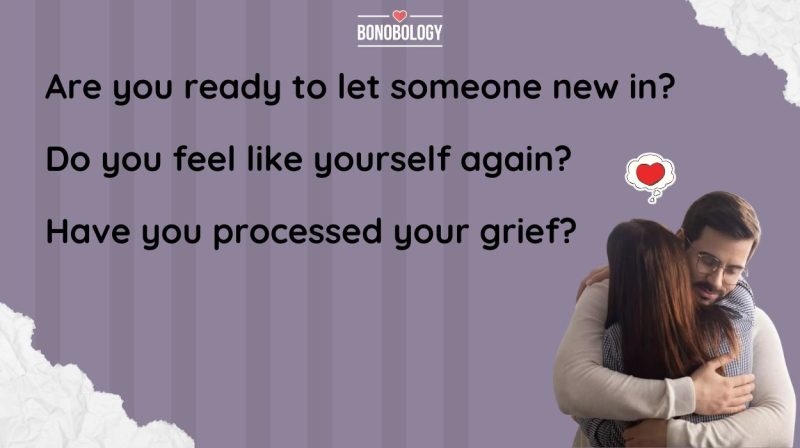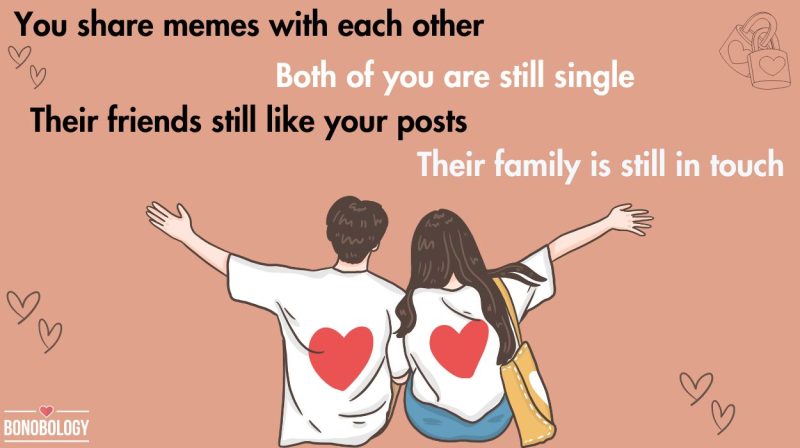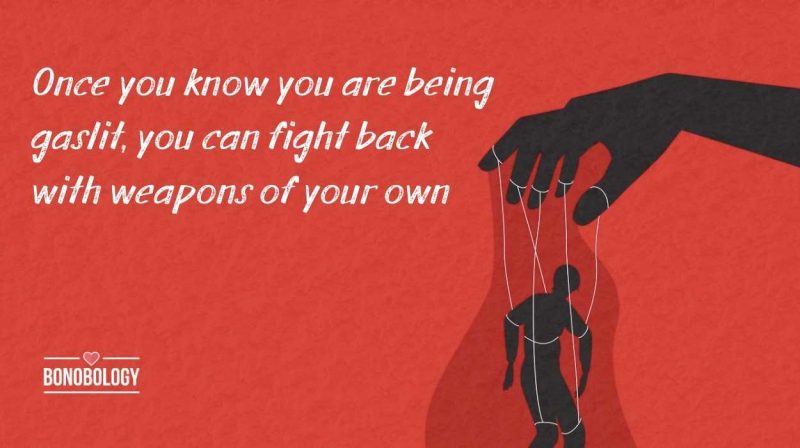When having a particularly stressful conversation, you start to feel the emotions inside you well up. You try to control them, use your rational mind, and get through the situation but the emotions are bubbling inside of you. Eventually, you feel words being dictated not by your thoughts, but by emotions. Ever been in such a situation? If yes, then you have had an encounter with emotional flooding.
Since it’s essentially a situation where you find yourself incapable of controlling your reaction to a particularly triggering event, it may negatively impact your romantic relationships. Confused about how emotional flooding in relationships works and how you can curtail it?
With the help of psychologist Pragati Sureka (MA in Clinical Psychology, professional credits from Harvard Medical School), who specializes in addressing issues like anger management, parenting issues, abusive, and loveless marriage through emotional ability resources, let’s take a look at everything you need to know about the subject.
What Is Emotional Flooding?
Table of Contents
“It was a stressful Wednesday evening and I was chasing a deadline. I asked my husband if he could prepare dinner, and he commented sarcastically about how I’m domesticating him. That really triggered me and I yelled back how I have work too and he could at least help. Taken aback, he started defending his comment and said I was overreacting. At that moment, all the stress and emotions got to me, and I let them take the wheel. We had a long argument and didn’t speak till the following morning,” says Nicole, a 29-year-old corporate lawyer.
If Nicole’s experience rang a familiar bell in your head, you have experienced emotional flooding. Arising often in situations where a person close to you might say something unpleasant or triggering, emotional flooding is not uncommon and can lead to uncomfortable and unwanted consequences, like resentment in the relationship.
It wouldn’t take one too long to guess what the term “emotional flooding” means. In essence, it is a situation where two or more emotions – or a particularly strong one – evoke such a strong reaction within you that you feel overwhelmed by it. Usually associated with negative emotions and difficult circumstances, emotional flooding leads to your actions being directed by your emotions, and not your rational thoughts.
The term was first discussed in academic circles in the early 90s when Dr. JM Gottman published a research paper discussing emotional flooding and its connection with marital dissolution and stability. For the scientifically inclined, Gottman’s description of emotional flooding, also called Diffuse Physiological Arousal, is a response by the sympathetic nervous system to stress, originally designed to alert us to danger and enable us to react quicker with self-defense.
Emotional flooding causes you to feel overwhelmed, activating your fight or flight response and letting your emotions control your actions. Explaining it, Pragati says, “Basically, emotional flooding is when you get triggered by incidents or situations. For example, if someone has a fear of heights and looks down from a great height, they get irregulated, right? They get emotionally flooded. Others may not see it as a big deal, but those with a fear of heights may not be able to control their reaction to this stimulus.
“A lot of times, emotional flooding happens because of actual triggers where a person imagines past experiences that left a mark on them. Along with the memory of the experience comes overwhelming emotions that become too heavy to handle. As a result, your brain goes into survival mode. Our reptilian brain takes over, and the problem-solving part of our brain comes to a complete stop because we’ve entered survival mode. It’s also one of the reasons why certain situations may bring glimpses of an unhealthy relationship in an otherwise respectful and healthy one.”
Emotional flooding psychology may help you understand why your partner acted out when you least expected it, or why they can’t seem to have a conversation with you about that one thing. Let’s take a closer look at emotional flooding symptoms and what happens during it.
Related Reading: Emotional Intelligence In Relationships: Make Love Last Forever
What Happens During Emotional Flooding?
As we have discussed above, emotional flooding can overwhelm your thoughts and evoke a reactionary response. Yet, along with the inundation of your mind, emotional flooding also manifests physiologically, inside your body. Think of all the things that happen to your body when you get annoyed at someone: your breathing gets heavier, your blood pressure might get elevated, and you feel a rush of blood to your head.
Emotional flooding takes all such reactions and kicks them up a notch. “When my partner and I get into serious arguments, I sometimes start hyperventilating. It’s difficult for me to talk clearly and I might stutter too,” says 24-year-old Danielle, who is a designer.
Elaborating on the showdown with her husband, Nicole adds, “My head started getting heavy and I could feel the blood pumping through my veins. My heart was beating so hard I could feel its pace in my chest.”
Pragati says, “We get dysregulated, we are not able to understand ourselves, or understand our actions. We may end up questioning ourselves with things like, “Why am I getting so emotional in this situation, why am I incapable of controlling my reaction?” As a result, you may end up letting your emotions get the better of you and might start to show a lack of respect in a relationship.
Such physiological reactions may be felt externally when having an episode of emotional flooding. Inside your body, your kidney is secreting stress hormones, your arteries are constricted, adrenal glands secrete adrenaline, and noradrenalin, your liver sends sugar into your blood and the blood supply to your brain is maintained or elevated. So clearly, emotional flooding affects not just your mind but also your body.
What Are The Signs Of Emotional Flooding In Relationships?
Whether you’re in a relationship or not, the emotional flooding examples all largely operate in the same way. Pragati says, “Some of the common triggers of emotional flooding in relationships are high levels of stress. If you’re constantly stressed out, you’ll experience a lot more emotional flooding. And being constantly emotionally flooded isn’t a healthy state to be in. Hence, it’s important that you do a lot more mindfulness practices, some deep breathing, and journaling.”
But, how exactly can you identify a period of emotional flooding? Are there any emotional or physical signs? If so, what do they look like? Pragati helps answer all your questions.
1. A lack of focus and forming coherent thoughts
When you experience thoughts and feelings that you are incapable of controlling, it almost feels like you’re incapable of producing a coherent thought. “The first sign of emotional flooding is when you completely lose focus because of overwhelming emotion. You’re not able to think at all because cognitively, your brain comes to a standstill. You feel a mental withdrawal since you feel that you can’t even process the things that are happening around you,” says Pragati. You might reach this stage more often if it feels like every conversation in your relationship turns into an argument.
2. Oscillating emotions
One of the reasons why emotional flooding in relationships can be so harmful is the fact that an episode of emotional flooding often involves emotions that change completely in a very short span of time. “You may experience a pendulum-like swing in your emotions,” says Pragati, “You may feel very angry, and then, suddenly you may feel very anxious. It’s basically the fight-or-flight response. You feel like you have to stand up for yourself or that you must exit the situation because you’re incapable of handling it anymore.”
3. Physical symptoms of emotional flooding
“You may see physical symptoms like your face getting blood red, your pulse rate increasing, and you’ll feel a heaviness in your heart. Your palms may also start sweating, and you may experience hot flashes,” lists Pragati. Some other commonly reported emotional flooding symptoms include a tight feeling in the stomach, finding it difficult to breathe, and experiencing speech disturbances.

Emotional Flooding Is Normal
The thing to remember above and beyond everything is that emotional flooding is normal. Yes, there might be certain circumstances in your life when you might be more susceptible to emotional flooding, but it is after all a part of our evolutionary physiological buildup – an instinctual reaction to threats, programmed into us so we can save ourselves.
Pragati explains that though being constantly emotionally flooded is definitely a negative experience, emotional flooding can often be considered normal, or even positive in certain situations, just like how arguments in a relationship can be considered positive. “Sometimes in psychology, emotional flooding may also be used as a technique to help you heal from repressed negative emotions by triggering them from your subconscious mind. To help you deal with whatever repressed feelings and fears that you may have.
“There are also positive ways of looking at emotional flooding. Say, for example, you are watching a movie and suddenly you’re flooded with emotions of patriotism, or if you’re watching your favorite sport and you’re swept with a moment of enthusiasm without even really realizing what you’re experiencing.
“Hence, it’s not just a negative experience. We must realize that emotional flooding happens to people regularly. Emotional flooding becomes a challenge when a person is not able to cope with the overwhelming sense of negative emotions that may rise up. For example, grief, pain, jealousy, or anger. It’s when you’re reacting very badly, where your nerves get charged up, you’re unable to think clearly, and you’re unable to control your negative reaction that it becomes a problem.”
Emotional flooding trauma can be particularly hard for men to deal with, as the general attitude toward repressing emotions makes it likely that they might perceive emotional flooding as something wrong or uncharacteristic. By normalizing the fact that we all need to deal with our emotions, we can help others to react better to instances of emotional flooding.
Research by Dr. Gottman has shown that men are more physiologically prone to emotional flooding than women. Besides, everyone is aware of the role masculinity plays with respect to men displaying emotions. With a tendency in men to ignore and repress emotions, it is no wonder that these emotions burst out in an episode of emotional flooding.
What Causes An Episode Of Emotional Flooding In Relationships?
“The reason why we’re talking about emotional flooding in relationships is that on a lot of occasions, we get very triggered by a lot of things that take place in our intimate relationships. It may be because we expect one person to provide us with support, camaraderie, empathy, and everything under the sun. When that doesn’t happen, it may lead to emotional flooding.
“A lot of times emotional flooding essentially happens when the other does not cater to your needs the way you want them to. What we see in therapy is that usually such people have a lot of unprocessed childhood trauma. A lot of times they are used to looking at something outside of themselves that controls their feelings of being happy or sad,” says Pragati.
Of course, the reason for an episode of emotional flooding trauma may be different for everyone, but common factors like always being stressed out or having negative repressed emotions are often the culprit. All of us have to deal with intense or stressful situations at one time or the other, so the possibility of emotional flooding can never be ruled out for anybody.
However, if you are going through a tough period or are a sensitive person, there is a higher chance that you’d experience emotional flooding in a stressful situation. People dealing with grief or loss are also highly susceptible to this. Here are some other common triggers behind emotional flooding:
1. Toxic relationships
Emotional flooding usually arises out of a position of stress or discomfort. Reaction to a traumatic or intense event may cause emotional flooding. Relationship challenges can be a trigger for emotional flooding. A recent study on emotional flooding in marriages has shown that couples in a distressed marriage or with intimate partner violence are more susceptible to it.
Thus it’s not surprising that emotional flooding occurs so frequently in distressed or toxic relationships. Since suppressing emotions is a common theme in toxic relationships where you’re constantly walking on eggshells around your partner, a release of pent-up feelings through emotional outbursts is not uncommon. The suppression and outbursts can become a vicious cycle, which can lead to stonewalling and deterioration of relationships.
2. Emotional flooding after infidelity
When dealing with infidelity, emotional flooding can be a hurdle in effectively addressing and dealing with the problem. Emotional flooding after infidelity can cause your emotions to override your rational thoughts and throw out vicious, charged comments at your partner. Since you feel wronged and betrayed, you might let your anger – which is a common trigger for emotional flooding – take over even willingly, to unburden yourself and show how the betrayal hurt you.
Danielle recounts her experience, “Trying to move past my husband’s affair, I often found myself being consumed by the feelings of anger and betrayal. For about a month, it was difficult for me to have rational conversations with him and I would unleash my frustration at him every chance I could.”
Succumbing to emotional flooding after infidelity makes it more difficult for you to process and move past it. It would be advisable to rather focus on identifying and controlling your emotions. Once in control of your emotions and thoughts, your handling of the situation would be better and not destructive.
Related Reading: 7 Toxic Signs Of An Unhealthy Relationship
3. Emotional flooding and stonewalling
When one is in a particularly sensitive state, especially with matters concerning relationships, experiencing emotional flooding can lead to more distance and communication gaps. Your outburst of pain or anger may seem cathartic in the moment, but the more it happens, the more likely it is that your partner will stop trying to engage or discuss sensitive matters with you. As emotional flooding trauma increases, your partner may become more withdrawn, cordoning you to deal with emotional flooding and stonewalling.
Speaking about how emotional flooding affected her relationship, Nicole says, “After our first fight regarding making dinner, it became a sensitive topic. Every time we had a conversation about it, I would yell at him and it never ended well. After a few episodes of emotional flooding and him stonewalling me, both I and my husband avoided having long conversations; saying that it was better to not talk about it rather than fight again.”
As the name suggests, stonewalling in relationships is when your partner refuses to communicate altogether, shutting you out of some parts of their life and not engaging you on sensitive topics. This would only serve as an inducing factor for emotional flooding in the future, and something which should be addressed, preferably in therapy, as soon as possible.
4. Suppressing your emotions
Suppressing your emotions can create a backlog of thoughts and feelings inside you. Besides reacting to particular triggers, this can also cause you to unleash all of the pent-up frustration and emotional burden on your partner during an argument about an entirely different topic.
This is harmful not just to you but also your relationship. “It was like I was stuck in a cycle, swallowing my anger through the day and letting it all out when I spoke to my husband at the end of the day,” recalls Danielle. The emotional flooding symptoms, as a result, keep getting worse.
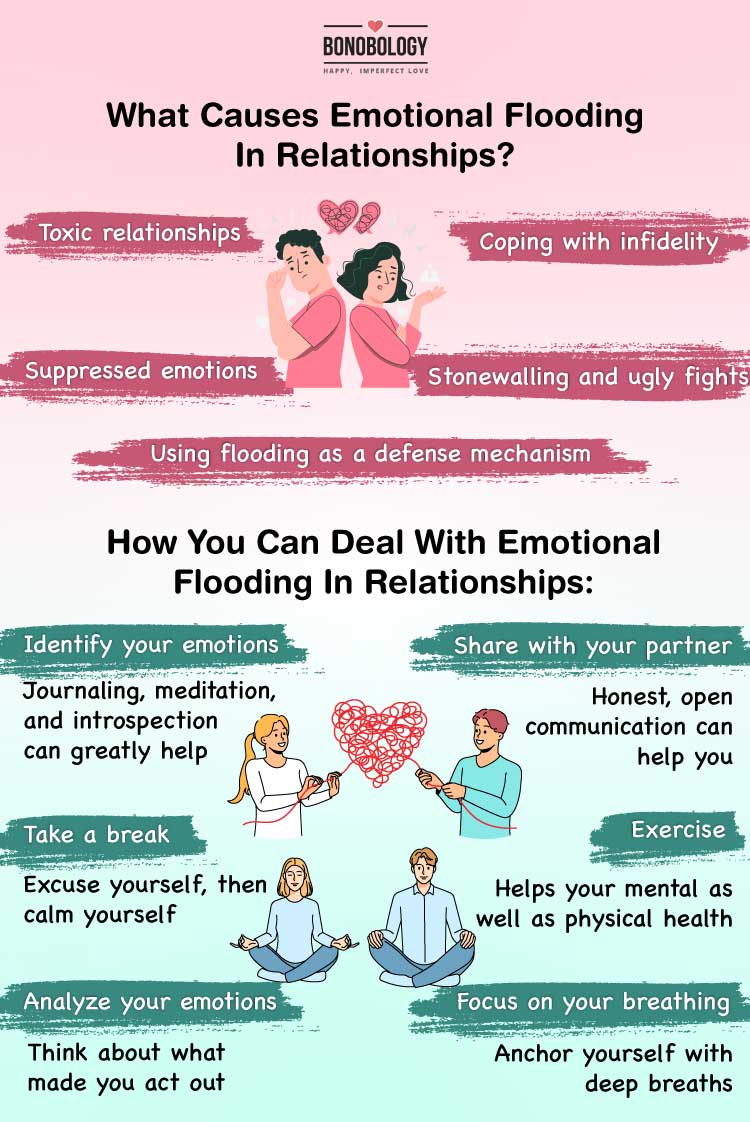
5. Flooding as a tool
People who are not in tune with their emotions may also resort to flooding as a tool, often without recognizing it. This display of flooding comes into play, especially in the case of people who in their growing-up years were not given the tools to work through their emotions and were often left to self-soothe by their primary caregivers or parents. As we said, the emotional flooding psychology is complicated.
Flooding psychology, better known today as flooding therapy, is a method used in psychotherapy to address certain triggers which can cause an emotional reaction. Flooding therapy essentially reverses what emotional flooding does to our body and mind, using exposure to stressful factors to address and cope with triggers.
Although this might seem counterintuitive, this method has been applied in different parts of the world over the past few decades. While the person using this tool to deal with the emotions may not be aware of the intricacies of flooding psychology, they could still be instinctively mirroring it.
Related Reading: 6 Couples’ Experiences On How Talk Therapy Helped Their Relationships
How To Deal With Emotional Flooding In Relationships
So far, we’ve learned that difficult conversations can lead to flared emotions and may cause emotional flooding. In such a situation, it is better to identify when a conversation is heading toward aggressive or irrational territory and to take a pause and return to it later. Here are some things that you can do to plan for and deal with emotional flooding:
1. Focus on your breathing
Emotional flooding occurs when your emotions tend to overpower your rational thinking, triggering chaotic overthinking. One of the more common physiological symptoms of this is heavy or accelerated breathing. It is by paying attention to this simple, constant bodily function that we can best deal with emotional flooding episodes.
“The first and the best thing to do is to start breathing. Start deep breathing and anchor yourself in your breath if you feel you are getting charged up. Or if your argument is getting out of control, the best you can do is breathe,” says Pragati.
Focusing on your breath, and attempting to take steady, deep breaths can greatly help. Deep breaths activate the “rest and digest” part of your body (the parasympathetic nervous system), helping you to relax, increasing blood flow to your internal organs, and stabilizing your heart rate.
“I found that developing a habit of breathing concentration helped me deal with stressful situations, particularly with my husband. I started to meditate too, gaining more control over my thoughts through breathing, which improved not only my relationship but also my efficiency at work,” says Nicole.
Pragati suggests a technique that often helps those who are in the midst of an emotional flooding episode. “One technique you can try is the grounding technique. Breathe in, look at things around you, and try to register them in your mind. Take a look at what you’re standing in front of, what the material of your t-shirt feels like, and what the air on your face feels like. Instantly, you can manage your emotions even if you’re in the thick of an argument.”
2. Identify your emotions
It is a well-known fact that acknowledging and naming your emotions can help you process them better and grant more control over them. A study by UCLA Professor Matthew Lieberman and colleagues showed that naming your negative emotions such as anger, sadness or fear calms the Amygdala, a part of the brain that helps define and regulate emotions.
By identifying the emotions when they flare up, you can help dissipate their intensity. The more often you take time to recognize what you are feeling, the better you will get at it. Eventually, you reach a stage where your emotions are no longer threatening to you but a part of your daily experiences.
Pragati suggests an activity that may help you identify your emotions, “If you’re someone who gets stressed out too much and is prone to having an emotional flooding episode, journaling can greatly help you understand the problems and identify your emotions.”
3. Take a break
Self-soothing is a popular tool for effectively addressing emotional flooding. What is self-soothing? Well, when you experience emotional flooding, your body has many physiological reactions, as we discussed above. To cool down and settle that physiological state, most people need around 20 minutes. Taking a break and doing something relaxing or stimulating can help extract you from the state. The important thing is to spend time to soothe your psyche, your body, and thus yourself.
How best to self-soothe varies from one individual to another. Taking a walk around the block and observing nature helps some people. Others decide to channel their energy into another activity like watching a funny video or talking to a friend, or spending some quality time with a loved one. Pragati explains what taking a break during emotional flooding in relationships can feel like, “After you’ve anchored yourself with your breath, tell your partner that you need a minute to collect yourself and your thoughts.
“Another thing that can be extremely beneficial is to leave the situation that caused the emotional flooding in the first place. Drink some water, take a break and go to the washroom, splash some water on your face and make yourself calm down. Communicate with yourself, and be kind to yourself. For example, if you see a child bawling in the mall, you’ll first want to calm the child down, and only then will you be able to get through to them, right? Similarly, be a little patient with yourself.”
4. Analyze your emotions
Once you have taken time to extract yourself from a state of emotional flooding or have time to think about what brought it on, it is a good idea to analyze the emotions you have identified or named. Question why that emotion arose in the situation, and what caused you to get overwhelmed. By giving thought to what caused the situation, you can fragment the emotions and understand your reaction. This will help you to tackle the situation better whenever it may arise next.
Speaking of her process, Danielle says, “I found myself getting angry every time I opened my husband’s text messages because I had found out about his affair by chancing upon his text exchange with the other woman. In many ways, it became a trigger for me. So I started calling him whenever I needed to, and eventually, was able to return to texting him without thinking about the past or being triggered.”
5. Exercise
Research has also shown that people who engage in physical exercise and are used to dealing with more sweaty and stress-inducing situations have a higher resistance to emotional flooding. Exercising is a good method to train not just your body but also your mind to deal with uncomfortable situations.

It increases your body’s ability to deal with more stress and can help you deal with difficult emotional situations. You can also try to make exercise a common activity that you and your partner practice together. This will help you both grow closer and give you the opportunity to communicate better.
Related Reading: 9 Activities To Rebuild Trust In A Relationship – As Recommended By A Couples Counselor
6. Share with your partner
It can be a good strategy to engage with your partner in discussions about your emotional flooding episodes: the factors which caused it and what you are physically feeling. Not only does this aid you in analyzing the episode through elucidation but also recruits a loved one in your efforts against such episodes.
So instead of getting caught in the cycle of emotional flooding and stonewalling, use it to create the opposite effect. It will yield better results for your relationship. Sharing your experience with emotional flooding can inculcate a habit of sharing emotions and discomforts, which can alleviate this phenomenon to a great extent. Researching more on coping strategies and planning for them together is a great tool for preventing or mitigating future episodes.
Key Pointers
- Emotional flooding is usually caused by periods of elongated stress or when a person gets triggered by experiences that bring back unpleasant memories and feelings that they find difficult to deal with
- During an emotional flooding episode, a person may not necessarily be able to control the reactions they are having
- Emotional flooding may not always be negative, and is also used as a form of therapy in some situations
- In relationships, emotional flooding can often end up causing resentment and harm, hence, managing it as early as possible is important
Depending on your comfort, therapy can help address emotional flooding too. A therapist or coach can aid you in identifying your emotions, what patterns lead to flooding episodes and techniques to deal with specific situations. Visiting a therapist with your partner may also help them understand you and your emotions better. By working together, you can not only deal with emotional flooding but also become closer in your relationship.
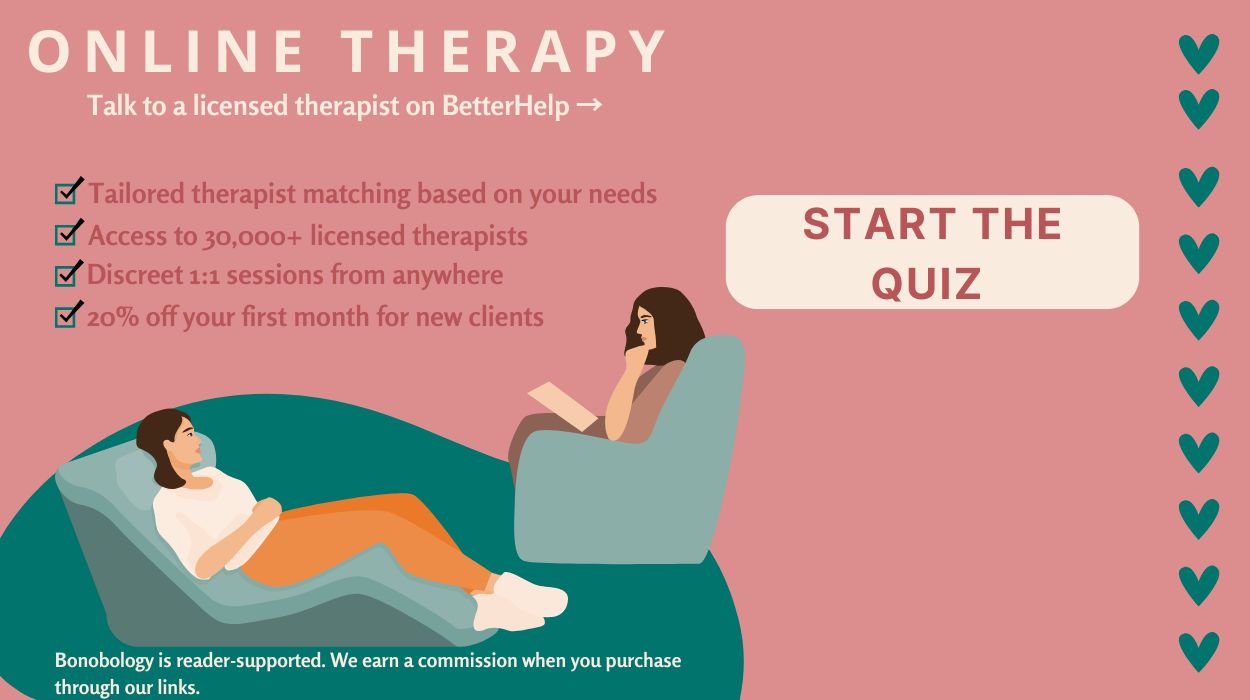
FAQ’s
Emotional flooding is caused due to a rise of one or more intense emotions, usually because of some external factors like mean comments to you, leading to your emotions overwhelming and controlling you.
The duration of an emotional flooding episode depends on how long one is in a stressful situation, such as a heated argument. However, it takes up to 20 minutes to cool down from an emotional flooding episode.
Being aware and open to your husband’s emotions and feelings will aid you in helping your husband through an emotional flooding episode. Planning for such episodes and practicing soothing activities like meditation, taking a break from the stressful situation are a few things you can do together.
20 Questions To Ask Your Partner To Build Emotional Intimacy
What Is Trauma Dumping? A Therapist Explains The Meaning, Signs, And How To Overcome It
Your contribution does not constitute a charitable donation. It will allow Bonobology to continue bringing you new and up-to-date information in our pursuit of helping anyone in the world to learn how to do anything.



